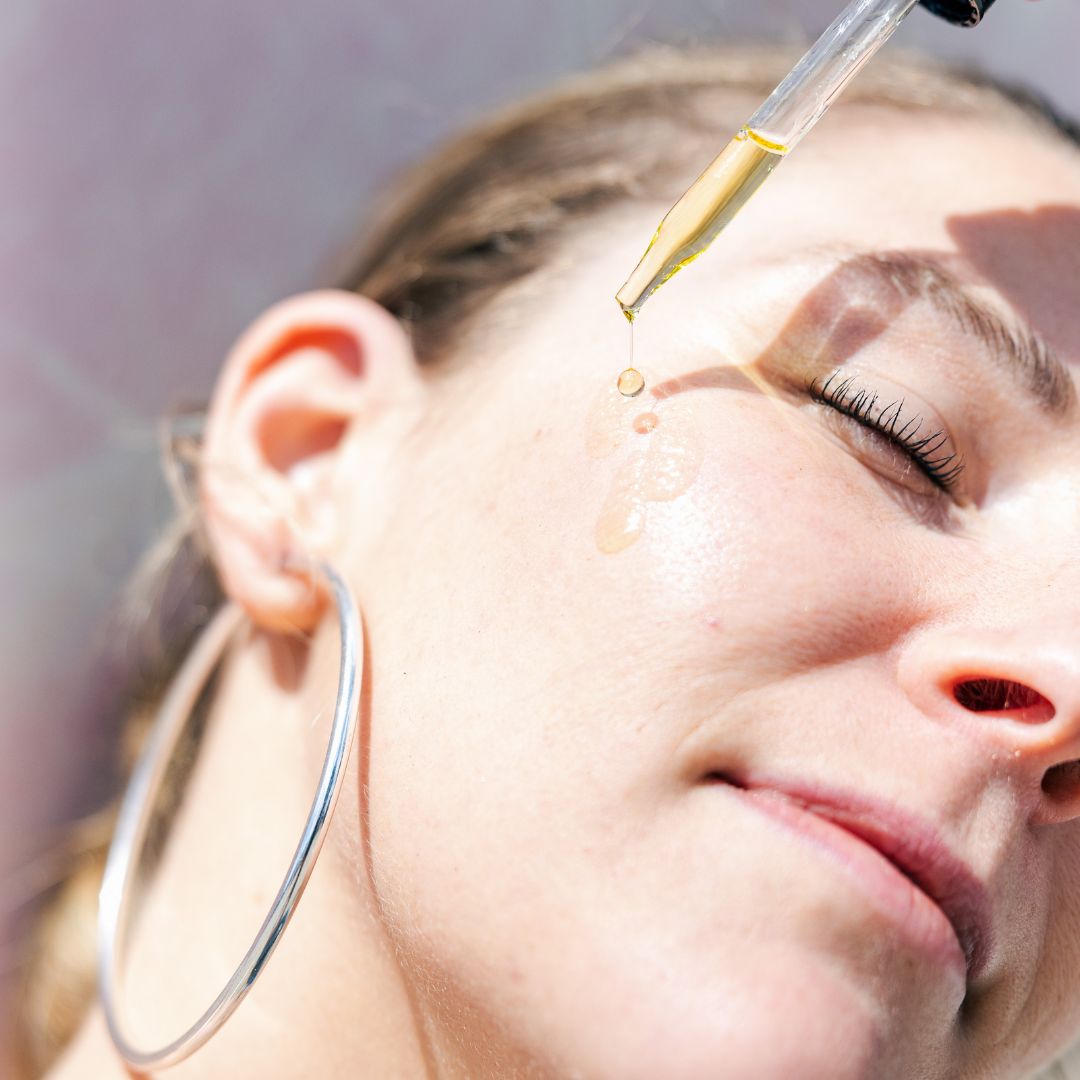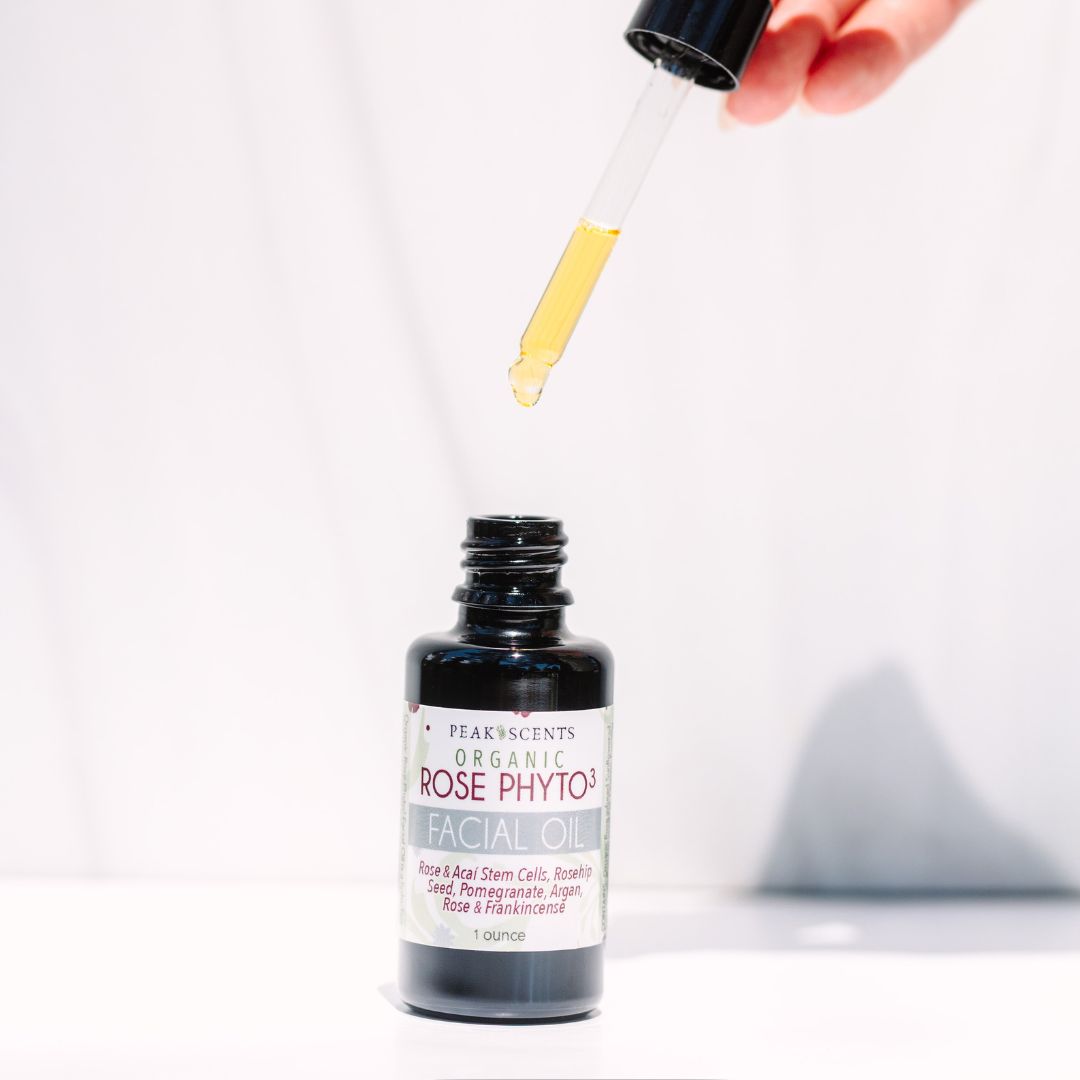The conversation around skincare ingredients is livelier than ever. Plant oils are trending—sometimes because of debates about seed oils in our diets—and beef tallow has gained attention through the “ancestral” wellness movement. The truth? Not all oils, butters, or balms are created equal, and what you put on your skin matters as much as what you put in your body.
At Peak Scents, we’ve spent over 30 years formulating plant-based skincare rooted in both herbal wisdom and scientific research. Our approach goes beyond simply selecting the best cold-pressed, unrefined oils from seeds, fruits, and nuts—like sunflower, rosehip, pomegranate, avocado, jojoba, argan, coconut, and olive. We also incorporate nutrient-rich plant butters (such as shea and cocoa butter) and natural beeswax for their unique skin-loving benefits. And we take it a step further with our signature 30-day cold-infusion process: botanicals are gently steeped in oils at room temperature, with no heat involved. This careful method preserves delicate nutrients, antioxidants, and phytonutrients—ensuring your skin receives the full potency of every plant.
Internally: The Plant Oil Debate
Much of the controversy centers around dietary seed oils such as canola, soybean, sunflower, safflower, and grapeseed. These oils are sometimes labeled “toxic” or “inflammatory,” but the real issue lies in how they’re processed and consumed.
-
The concern: Highly refined oils, especially when overheated or used extensively in processed foods, can degrade into unstable compounds that stress the body.
-
The reality: It’s not the natural, cold-pressed oil itself that’s problematic—it’s industrial refining, high-heat extraction, and overconsumption.
-
The takeaway: For your diet, minimizing refined oils in processed foods is wise. But in skincare, unrefined, cold-pressed plant oils—whether from seeds, fruits, or nuts—are an entirely different story.
Externally: Why Plant Oils, Butters, and Beeswax Shine on Skin
When applied topically, plant oils, butters, and natural waxes deliver hydration, antioxidants, and essential fatty acids directly to the skin barrier. Research shows they can:
-
Repair and strengthen the skin barrier
-
Calm inflammation and irritation
-
Support wound healing
-
Improve hydration and elasticity
-
Reduce acne, scarring, and hyperpigmentation
Unlike heavy animal fats, many plant oils are lightweight, absorb easily, and can be tailored to suit all skin types—from acne-prone to dry and sensitive.
Our Cold-Infused Oil Philosophy
We believe the best skincare starts with the purest ingredients and the most mindful methods. That’s why every batch of Peak Scents oils is crafted using a 30-day cold-infusion process. Herbs and botanicals are steeped slowly in oils at room temperature, never exposed to heat or harsh chemicals.
This time-honored approach:
-
Maximizes the extraction of vitamins, antioxidants, and phytonutrients
-
Protects delicate compounds that can be destroyed by heat
-
Results in oils that are deeply nourishing, gentle, and highly effective
Our Oils, Butters & Beeswax: A Spectrum of Plant Power
Here are just a few of our favorites (among many!):
-
Sunflower Oil (seed): Strengthens the barrier, hydrates, and is gentle for sensitive skin.
-
Rosehip Oil (seed): Rich in vitamin A precursors and essential fatty acids; brightens, reduces scars, and smooths fine lines.
-
Pomegranate Oil (seed): Contains punicic acid, a rare omega-5, supporting regeneration and protection against oxidative stress.
-
Avocado Oil (fruit): Deeply nourishing with oleic acid and vitamins A, D, and E—ideal for dry or mature skin.
-
Olive Oil (fruit): Rich in squalene and antioxidants; protective and hydrating, best blended with lighter oils.
-
Jojoba Oil (seed): Balances oil production, mimics natural sebum, calms acne-prone skin.
-
Argan Oil (nut): Packed with vitamin E, squalene, and polyphenols; boosts elasticity and reduces visible aging.
-
Coconut Oil (fruit): Moisturizing and antimicrobial thanks to lauric acid—great for body care.
-
Borage & Evening Primrose Oils (seeds): Excellent sources of gamma-linolenic acid (GLA), calming inflammation and helping eczema-prone skin.
-
Shea Butter (nut): Intensely moisturizing and soothing, packed with vitamins A and E; helps protect and repair dry, sensitive skin.
-
Cocoa Butter (seed): Deeply hydrating and rich in antioxidants; helps improve skin elasticity and smoothness.
-
Beeswax: Provides a natural protective barrier, locks in moisture, and soothes irritation—all while letting skin breathe (does not clog pores).
Together, these ingredients—carefully cold-infused for a full month—provide a wide array of fatty acids, vitamins, antioxidants, and phytonutrients, delivering more than any single oil or butter can offer.
What About Beef Tallow?
Beef tallow—rendered animal fat—has been promoted as a “natural” moisturizer. While it does contain some skin-beneficial compounds, it falls short compared to cold-pressed, cold-infused plant oils and butters.
-
Limited nutrient diversity: Tallow is mostly saturated fat, lacking the broad mix of essential fatty acids and phytonutrients crucial for skin barrier repair.
-
Poor absorption: Because of its large molecular size and high proportion of long-chain saturated fatty acids, beef tallow tends to sit on top of the skin instead of absorbing in. This creates a heavy, waxy film that traps debris, blocks pores, and can contribute to breakouts.
-
Fewer antioxidants: Tallow offers vitamins A, D, E, and K but contains far fewer polyphenols, carotenoids, and phytosterols than plant oils and butters.
-
Skin feel: While it may provide temporary softness, the occlusive coating often feels greasy and suffocating rather than nourishing.
-
Sustainability & ethics: Tallow is animal-derived and less sustainable.
-
Evidence gap: Unlike plant oils and butters, tallow’s skincare benefits remain mostly anecdotal and under-researched.
Cold-Pressed, Cold-Infused Plant Oils, Butters & Beeswax vs. Beef Tallow: A Quick Comparison
|
Aspect |
Cold-Pressed, Cold-Infused Plant Oils, Butters & Beeswax |
Beef Tallow |
|
Fatty Acid Profile |
Diverse mix (linoleic, oleic, GLA) + butters |
Mostly saturated/monounsaturated; limited EFAs |
|
Nutrients |
Rich in antioxidants, polyphenols, vitamins, plant sterols |
Some vitamins, but fewer antioxidants |
|
Skin Benefits |
Clinically shown to repair, soothe, hydrate, improve barrier |
Moisturizes; limited scientific evidence |
|
Skin Feel |
Absorbs well, customizable from light to rich |
Heavy, waxy; tends to sit on top, clogs pores |
|
Sustainability |
Plant-based, renewable, cruelty-free |
Animal-derived, higher impact |
|
Overall |
Broad-spectrum, barrier-supporting, sustainable, versatile |
Moisturizing, but limited and heavier |
The Takeaway
-
Internally: Highly refined seed oils in processed foods can be problematic, but cold-pressed plant oils—seed, nut, and fruit—are nutritious and supportive when used in moderation.
-
Externally: Cold-pressed, cold-infused plant oils, butters, and beeswax are some of the most effective, research-backed ingredients for healthy, resilient skin.
-
Compared to Tallow: Plant-based ingredients offer broader nutrition, better absorption, sustainability, and proven results—making them the superior choice for modern, holistic skincare.
At Peak Scents, we choose plants because they’re powerful, proven, and sustainable. Our blends of cold-pressed, cold-infused oils, plant butters, and beeswax deliver the nutrients your skin craves—naturally.

